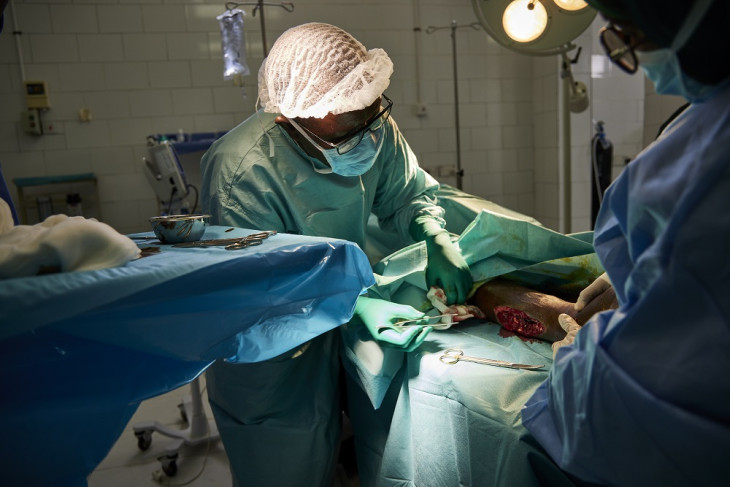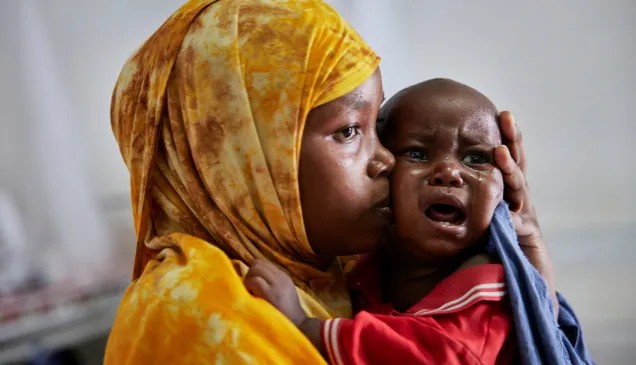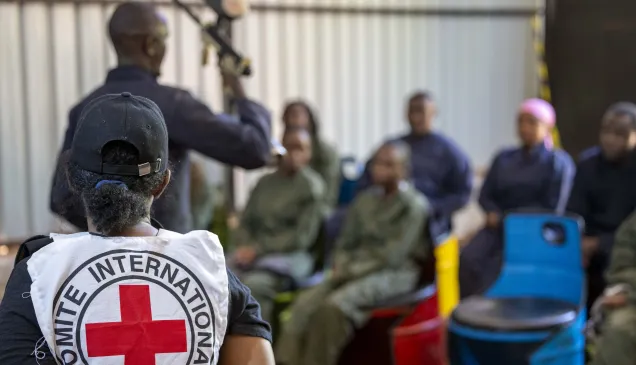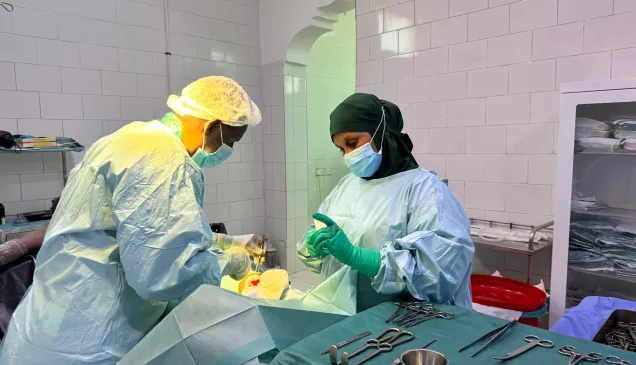ICRC Health Response in Somalia
Decades of conflict, insecurity, climate-related phenomena, and natural disasters have affected the overall health indicators in Somalia, most of which score very low.
An extreme drought caused by several failed rainy seasons and an increase in armed violence and conflict this year have further exacerbated the already fragile situation, particularly in hard-to-reach areas where essential services are even scarcer. Deaths and injuries caused by the conflict are spiraling up whereas illnesses related to food insecurity - such as malnutrition, measles and acute watery diarrhea (AWD) - are also steadily increasing.
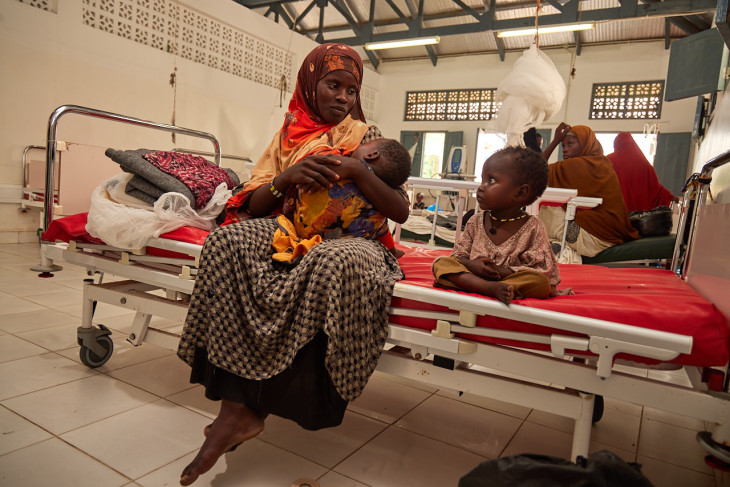
It took Maryan and her daughters two days to reach reach Kismayo Hospital. Ikraan Abdiaziz (right), almost two years old, was severely malnourished. Two weeks into the treatment program, Ikraan has regained her liveliness. In fact, she is leaving the ICU for the the next phase of the treatment where she will be under a lighter care regimen.
The ICRC's health work is aimed at ensuring that people affected by conflict can access basic health care. In Somalia, the ICRC has worked for decades with the Somali Red Crescent Society (SRCS) to support existing health care services in providing emergency care. Today, the ICRC supports regularly four hospitals as well as 27 primary health care centres, three physical rehabilitation facilities and three ambulance centres run by the SRCS by providing material and financial assistance and building the capacity of the staff. It also rehabilitates existent and builds new infrastructure and ensures that health structures have access to clean water. In two hospitals, the ICRC further supports the stabilization centres treating acute malnutrition. Most of the primary health care units also provide treatment for malnutrition.
In addition to its regular support, the ICRC is able to deliver rapid assistance in emergency situations, for example by providing hospitals with essential material to treat weapon wounded patients.

The SRCS mobile-health-team van heads to the outskirts of Mogadishu city. Five days a week the team goes to a specific rural area to deliver health services. Inside the van is a health team of six: the head nurse, an out-patient clinic officer, a midwife, a nurse who attends to children under age five, and auxiliary nurses who help with dispensing drugs and other services.
Emergency support - treating victims of armed conflict
Somalia`s first aid and pre-hospital emergency care program's activities (FAPHEC) consists of supporting holistic pre-hospital care by providing salaries or incentives to staff and volunteers as well as providing transport and drugs to enable delivery of aid. The ICRC also delivers basic and advanced first aid and mass-casualty training for SRCS Action teams, armed actors and other pre-hospital care providers. The ICRC also provides a basic first aid training for vulnerable communities.
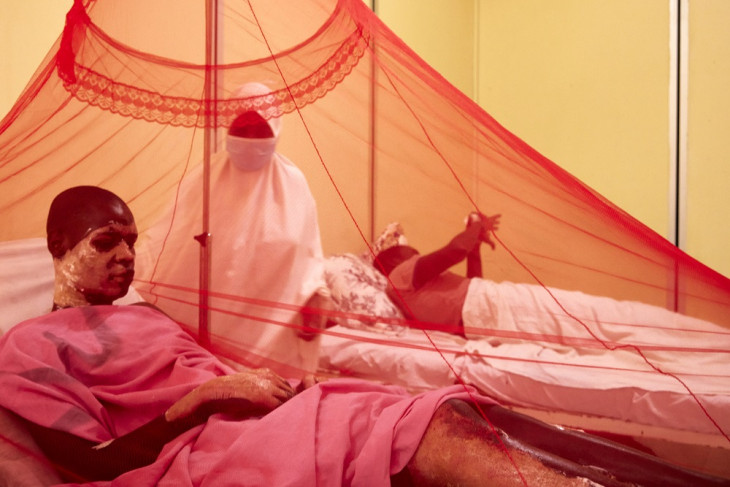
Salah Mohamed, a mechanic in Mogadishu, was the victim of a car bomb that exploded at the El Ghab junction in the city."There was smoke. I was confused and went into the fire, but then turned away. I got out and the smoke hit my face. I fled to the Garden of Peace." recalls the 29-year-old man. His face, arms and legs are covered in burns.
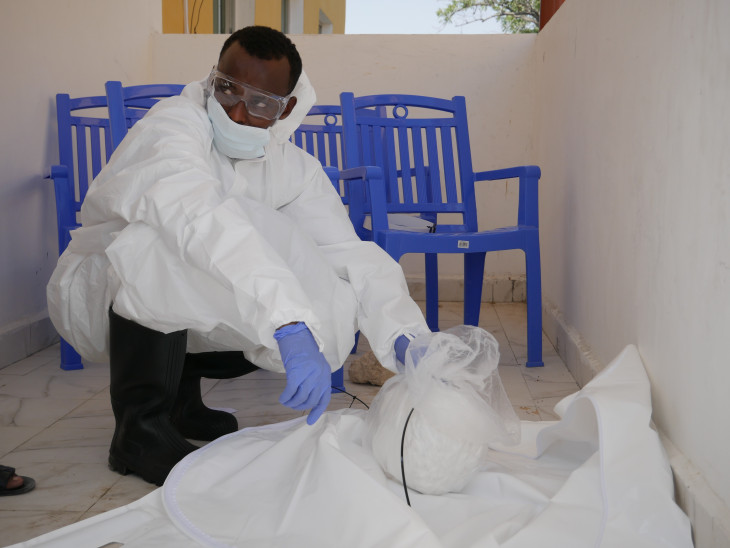
Help keep key hospitals running: Madina, Keysaney, Baidoa and Kismayo
The ICRC helps four hospitals in Somalia - Madina, Keysaney, Baidoa and Kismayo to improve:
- Access to hospital care
- Pre and post-operative care for patients
- Hospital management activities aimed at empowering hospitals and strengthening operational relationships with local authorities
The ICRC provides hospitals with regular medical and non-medical supplies, training, emergency support, water and infrastructure interventions and monthly incentives.
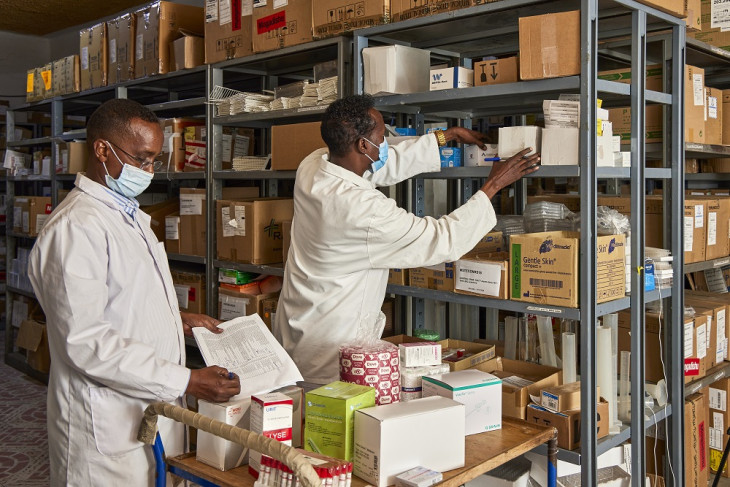
Madina Hospital pharmacy.
Responding to drought in Somalia
With the onset of the drought, the ICRC stepped up its' efforts to ensure provision of safe drinking water to communities and to treat malnutrition, AWD, cholera and other illnesses related to food and water insecurity.
Since the beginning of the year, over 1,5 million people have gained access to clean water from more than 30 rehabilitated water sources, and more than 150,000 people in Bardere, Belet Hawa, Kismayo, Baidoa and Jowhar have participated in community hygiene promotion. These activities included household water treatment and distribution of soaps, as well as hygiene awareness sessions in riverine areas prone to AWD and cholera outbreaks.
In addition to 27 Somali Red Crescent run Primary Health Care centers already operating in different parts of Somalia, the ICRC is supporting the SRCS in opening seven emergency mobile health clinics to provide integrated health and nutrition services to populations with no access to health care in conflict and drought affected areas.
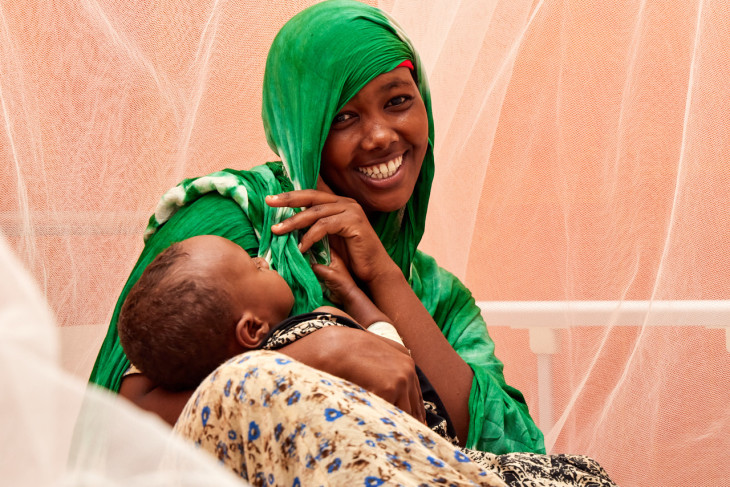
Leerto Hassan Ibrey, 21, with her one-year-old son in the intensive care unit of a stabilization center that treats severely malnourished children. The facility, located at the Bay Regional Hospital in Baidoa, central Somalia, has seen a surge in cases due to the ongoing drought in the country.
Services provided by the temporary emergency mobile health clinics include outpatient services and outpatient therapeutic program (OTP) for the treatment of severe malnutrition without complication. To reach to malnourished people, particularly in the most affected areas, the ICRC and the SRSC are engaged in a joint response with active mid-upper arm circumference (MUAC) screening in six hot spots areas.
Teams from the ICRC and the Somali Red Crescent Society (SRCS) support and maintain primary health care clinics, hospitals and stabilization centers that treat malnourished children and pregnant and lactating women.
For more information, view our Januray - June 2022 facts and figures.

